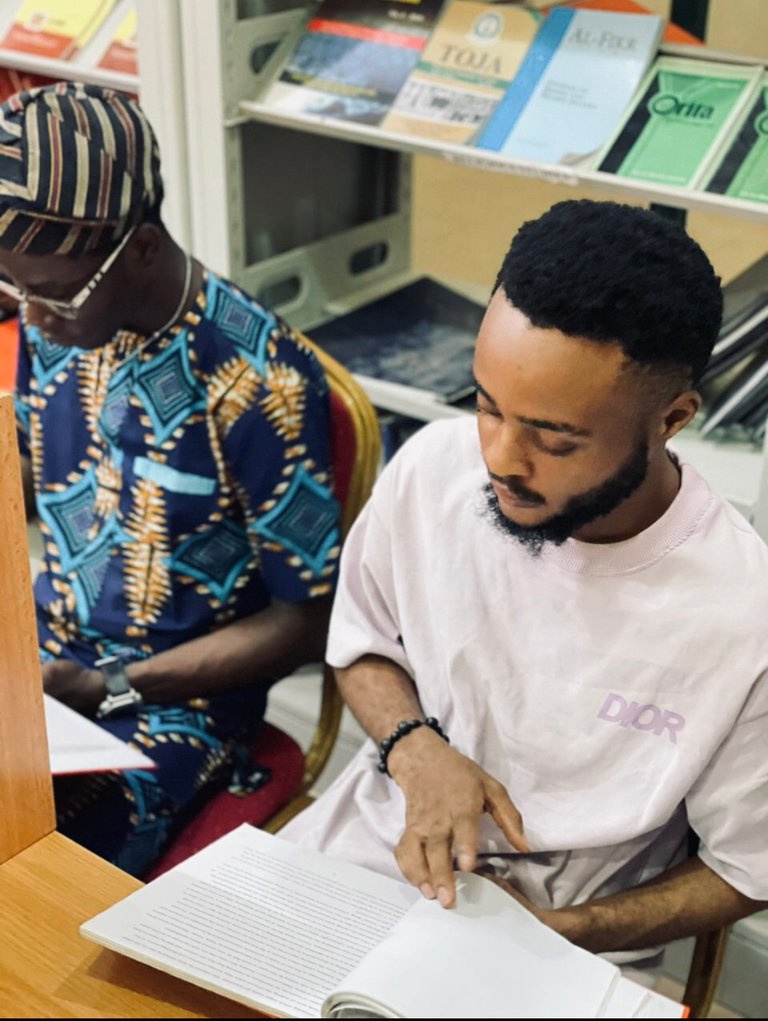Over the years, human beings have seen light and experienced the greatness of technology. Thanks to technology, life has gotten so much easier. It has extended its great hands to almost every aspect; agriculture, science, politics, arts, and more importantly, education. The importance of technology when it comes to education cannot be overemphasized. Gone are the days when people struggled to get resources on subjects. They had to go from libraries to libraries looking for books. And even when they couldn't find the materials in the libraries close to them, they had to go far places or resort to whatever worked for them. If you're not a rigid traditionalist, what is the point of going to libraries or stressing yourself going to different libraries when you can just go online and download them?
Truly, technology has made life very easy for students, especially students at tertiary levels. Thanks to the internet, students can go about their research even when lecturers decide to turn their backs on them. Here in my school, most of my lecturers are lazy. Instead of coming to class and teaching, they stay at home and laze around. Sometimes I wonder why they paid when they didn’t do anything. As far as we have the course outline, all we need to do is download materials on YouTube or any other website.
For years now, at least, since technology got to its “almost-vertex” and Artificial Intelligence came into the picture, there's been an ongoing debate about whether technology has made students lazy/lazier. Today’s Hive learners prompt asks us if students should be allowed to use their phones in schools. Should they be allowed to use their phones in classes and during tests? This topic is two-sided; the positive and negative side.
It is true that our forefathers (before the modern Era) were studious and hardworking. If you're an African, I'm sure your parents must have told you how they got first position in their class, and how they trekked to school, and read under the scorching sun, and the rain. When a tornado carried them, they still kept reading. When they got washed up by an avalanche, they still read. Although most of the academic stories they shared with us might not have been true, one thing I am certain of is that they were hardworking. Many African parents would claim that their kids are not serious about their education because their cell phone is distracting them. My parents never said this to me because I've always been a serious student, but they often said it to my brother.

When these parents (and every other 20th-century person) fail to understand that times have changed, it is only right that the people dance to the new tune. Speaking from my experiences, technology has helped me in so many ways. As I mentioned above, lecturers don’t take their jobs seriously at my university. To make matters worse, my course requires extensive reading. If there was no internet, we'd have to run shelter skelter from library to library, searching for novels and other materials. What if we are unable to find the materials in the school libraries? Would we travel to another state just to get them? One of the technological tools that has helped me in the past 2 years is AI.
Most of the time, these lazy lectures dump the course outline on our tables. Some courses are complex and they confuse you about how to go about them. All we need to do is ask AI for help! Easy peasy!

Yes, students should be allowed to use cell phones in classes. When these lecturers lecture, sometimes they say unrelated things or bring in unrelated theories. Thanks to the internet, all we need to do is to check online right then and there, for the meaning of the term and or theory. Interestingly, whenever one of my lecturers asks us questions in class and we don’t have answers to them, she goes, “Check the internet, and stop looking at me like a loaf of bread.” However, I don’t think students should be allowed to use their phones during tests. Tests are to test their brains.
It is true that phones, especially AI have made students lazy, but on the more positive side, it has made life easier for humans, especially students. It all narrows down to finding balance. Although these technological tools are there to help us out in our academic journey, they should be used in moderation. Yes, use these tools to widen your knowledge on different topics. These tools are important for breaking complex and complicated theories or topics. Use them for these things. However, don’t be too dependent on them by using them to write literally all your essays and assignments. Technology is here to stay, it is up to students to make use of it wisely and find balance.
Thanks for reading.

Posted Using INLEO
Here's a small tip my friend I hope you have a wonderful day ahead ✌🏾 😎👍🏾 @tipu curate
Upvoted 👌 (Mana: 35/45) Liquid rewards.
Thank you so much, my good friend.🤭❤️
I hope you have a nice day.
On a balanced note, many so called lecturers don't know what they even are asked to teach the students because they sort their ways through school. When you get across the serious ones the difference is always clear.
We just need to bring some balance in the use of all these gadgets because many don't believe any good can come from their brain any longer
Here in my school, there are only a few lecturers who take their jobs seriously. The difference is very clear.
Here in my school, there are only a few lecturers who take their jobs seriously. The difference is very clear.
A balance approach is truly the best because of the advantages and disadvantages the use of phones have to students.
Thanks for sharing
I'm glad you agree with me.
Thanks for stopping by.
I'm glad you agree with me.
Thanks for stopping by.
Unfortunately, this point is quite complex. Teaching something that the person has no knowledge about can generate more doubts than actually helping the students. Perhaps in this case, there should be some specific time for the person to use in the classroom and later question the teacher.